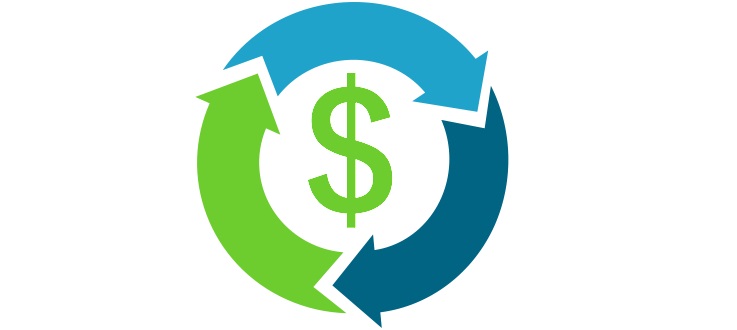
Last week I was awakened by a voice in my ear. It whispered four words, “the cost of recovery”. Since no one else was actually there to whisper these words, I wondered if this might be a seed of inspiration. I decided to wait, watching for further “signs” as confirmation.
The first email I opened that day was from someone trying to reconcile the (financial) costs of maintaining her recovery. The next email was from someone else expressing concern over the ramifications of recovery on the “rest of” her life. Shortly after, I spoke with someone else who was struggling to decide if recovery was really “worth it”. She felt that the cost of giving up her favourite foods along with the ability to eat with spontaneity, were just too great. She felt that the effort required for recovery was simply too much and (at least in this moment), she had no reason to believe it was worth it. In a not so subtle way, it seemed that I was being guided to write about the costs of recovery.
In any business, there are times when decisions must be made either to proceed with or forgo certain actions. A cost benefit analysis helps to decide what is best. Data is collected to establish if taking the action will be worth all of the effort and resources. The potential repercussions must also be considered. Ultimately, the question is, do the estimated benefits outweigh the costs?
My addict brain and my recovery brain both participate in running the business of my life. This conjures an image of my addict brain and my recovery brain, meeting in the boardroom of my mind. My addict brain is a cartoon figure, a shady little fellow wearing dark sunglasses and a trenchcoat. Carrying a tattered notebook, he enters the boardroom and sits at a table across from my recovery brain. My recovery brain is a human figure, dressed in a tailored suit and quite professional looking, she sits tall and confident with a laptop opened before her. Both are skilled negotiators but this was not always the case. You see, just four short years ago, I hadn’t even met my recovery brain yet.
I did not know what recovery was but I knew addiction. I’d reached a point where my greatest source of pleasure was also my greatest source of pain. My addict brain had been running the business of my life for years until suddenly, even if just for a moment, it knew that the pain of staying in the food was greater than the perceived pain of giving it up. In that moment, there was such a desperate need for relief that I was willing to take it at any cost.
I entered treatment and as I began to get well, my recovery brain started to emerge. With that, I noticed a growing tendency to want to debate the costs of recovery . This is the twist of thinking that I believe exists in the mind of every addict, it seemed I had already forgotten the pain which drove me to seek recovery in the first place! Both parts of my brain wanted to make a data driven decision to determine if recovery was “worth it”. One big problem with that is that the addict brain can not be trusted. It manipulates and hides data. It lies to create fear around the repercussions of a recovered life. But perhaps the bigger problem was that my recovery brain had not yet accumulated enough data to believe that the benefits of recovery might outweigh the costs.
It takes time to build recovery. It takes time to heal the addict brain. It takes time to know what the difference is between living abstinently and living in recovery. It takes even more time to experience this at a soul level. As a food addict in early recovery, I too had moments where I believed going back to the food held more for me than recovery ever could. I too had moments when recovery just didn’t seem worth it. I too was keeping score of costs and benefits and wondering if perhaps there wasn’t another, less “costly” way.
My addict brain and my recovery brain no longer meet to analyze the costs of recovery. As I continued to be willing to trust the process, my thinking shifted. My perception of the “cost of recovery” eventually fell away. My awareness of living a peaceful and enlightened life continued to grow until one day, there was nothing left to weigh or negotiate…there was just a knowing that the value of my life in recovery is beyond all measurable costs.
Andrea
